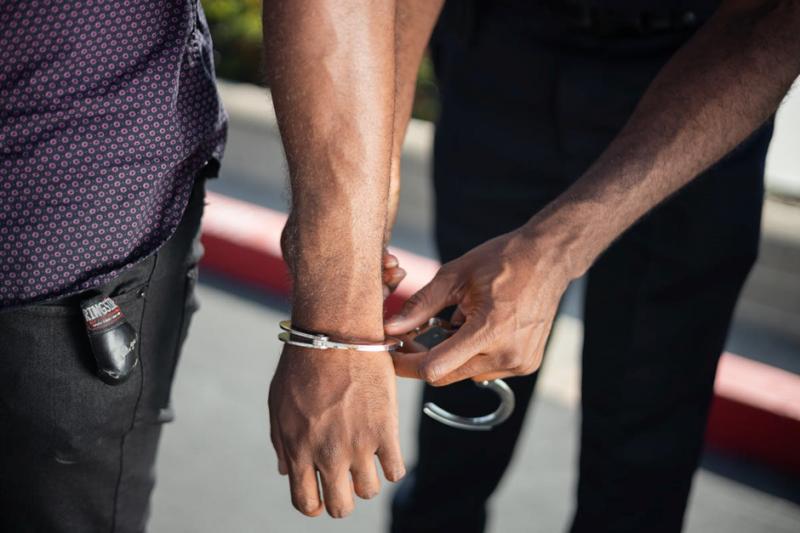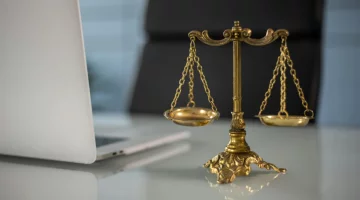The Criminal Trial Procedure: A Brief Guide
The very thought of a “court trial” can be daunting for many. It is necessary to gain legal advice before and during court sessions. Moreover, it is important to understand how these trials work because by its very nature, court trials can cause stress for all involved parties.
Notably, beyond reasonable doubt is the standard of proof used in a criminal hearing or criminal trial. This means that the evidence must prove that the defendant is guilty, and the defendant will be considered innocent until he/she is proven guilty.
A court trial can be held for a variety of different cases. A criminal trial takes place in case of criminal offences. There are many people involved in a criminal trial such as defendant, prosecutor, solicitors, court staff etc.
Criminal trials can take place in District Courts or Supreme Courts.
Whether you are directly involved in a criminal trial or are a family member of someone who needs to attend a criminal court trial for some case, this article provides a brief outline on the procedures of a criminal trial.
Overall, there are 8 steps to be aware of when discussing criminal trial procedures. Before we explore the steps, let’s discuss key terms associated with criminal trial.
Before we begin with exploring criminal trial procedures, let’s familiarise ourselves with some key terms that are used in such trials.
- Accused: The person who has supposedly committed an offence.
- Complainant: The person against whom the crime has been supposedly committed.
- Defendant: The accused can be referred to as defendant.
- Prosecution: Legal party tasked with presenting evidence against the defendant during the criminal trial.
For an exhaustive list of terms used in Australia, visit the Federal Court’s website.
Source: iStock images
Which court hears criminal matters?
In Australia, depending on the level of seriousness of the offence, there are three levels of courts that can hear criminal matters.
The Magistrate Court or Local Court is responsible for hearing criminal matters that are less serious in nature (summary or simple offences).
If the defendant pleads not guilty in the Local Court, the matter will go to a court hearing in the Local Court, or it will go to a trial in a higher court like the District Court. Following this, a date will be set for the court hearing.
If the defendant pleads guilty, either the Local Court or Magistrate will themselves sentence the guilty defendant, or they will commit the defendant for a sentence in a higher court.
Notably, the criminal trial procedure is relevant for defendants who plead not guilty. A court hearing takes place only in such cases. Given below is the outline of procedures that take place in a criminal trial.
#1 Investigation of the case
The first step before the criminal trial commences in the Court is to investigate the case. The investigator has to obtain statements from witnesses and collect evidence for the case.
The victim of the case can provide evidence. Others can also provide witness statements that the investigator will later compile to gather evidence for the case.
Moreover, the investigator will need to gather other forms of evidence including photographs, video recordings, and audio recordings.
#2 Prosecution’s assessment of evidence
Once the prosecution has assessed the investigator’s evidence, it needs to decide whether or not to prosecute the accused. If they decide to charge the defendant, the prosecution will issue a summons, requesting the accused to attend the court on a given date.
While issuing the summons, the prosecution will also inform the accused or the defendant of the charges against them.
Depending upon the seriousness of the offence, the matter will then be heard by either the Magistrate Court, District Court or Supreme Court.
#3 Hearing
Before a hearing takes place, some cases may also need committal proceeding or committal hearing. During the committal hearing, the Magistrate checks the evidence to decide if the defendant needs to be tried at the District or Supreme Court. In case there is insufficient evidence, the Magistrate will discharge the defendant.
The hearing occurs in the Magistrate Court, where the Magistrate makes all judgements. The witnesses are required to provide evidence and statements during the hearing.
This is also where the prosecution has to prove its case to the standard of proof, i.e., beyond reasonable doubt. If the Magistrate finds the defendant guilty, it may impose a sentence or set another date to do so. If the verdict is not guilty, the matter gets dismissed.

Source: iStock images
#4 Trial
The difference between a hearing and trial is that the hearing occurs at the Magistrate Court, whereas a trial takes place in either the District Court or Supreme Court.
Much like hearing, during court trial in District or Supreme Court, the prosecution will call witnesses to support the case against the defendant. The judge can listen to both sides of the argument, wherein the defendant can call witnesses and provide evidence if necessary.
The judge will then summarise the arguments to the jury, who will make the final decision. The jury needs to find the defendant guilty beyond reasonable doubt in order to convict the defendant.
#5 Sentencing
The court will then impose an appropriate sentence based on the severity of the offence. The sentence can include home detention, term of imprisonment, conditional release, or fines, or community service orders.
Conclusion: Can the defendant appeal?
The defendant has the right to appeal the sentence, or the verdict. The defendant will need to lodge a Notice of Appeal. For these purposes, the defendant is recommended to obtain legal representation.
Appealing a verdict, or a court sentence is a complex process. It is important for the defendant to prepare a strong argument.
This article has briefly explored the steps involved in a criminal trial procedure. For more information, it is recommended that you read legal blogs online to get a better understanding of how the law works in your jurisdiction.
Author info:
John Bui is the Principal Solicitor of JB Solicitors – a law firm based in Sydney, Australia. The firm deals with all matters related to criminal law, property law, family law, commercial law, and criminal law among others.
More to Read:
Previous Posts:



